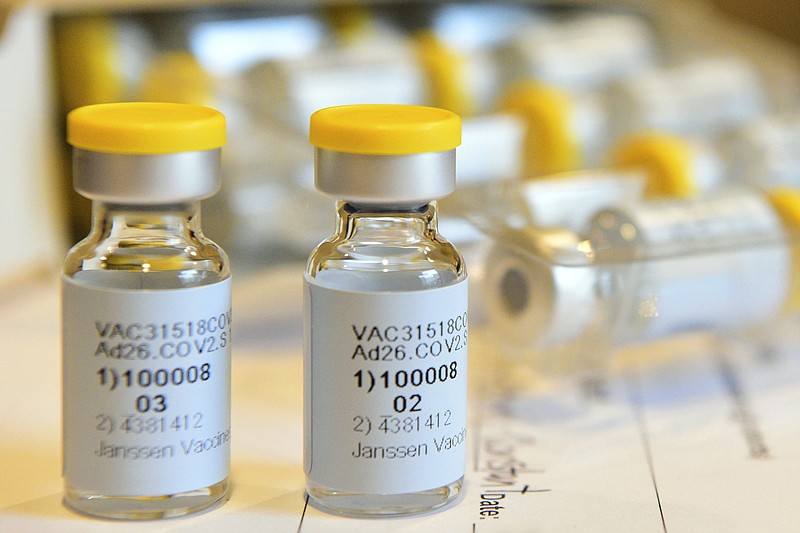We've never bought President Donald Trump's line that a COVID-19 vaccine would be ready by Election Day or even by the end of the year.
Following the president's exoneration by the U.S. Senate in his impeachment earlier this year, the virus is the only thing that likely has kept his re-election from a being a certainty. So it is not so shocking that he has tried to buoy hopes that a vaccine would be available.
Neither have we bought Joe Biden's rhetoric - now toned down by reality - that if he were elected and inaugurated as president, conditions surrounding the virus in this country and how it is combated would suddenly improve.
Many Americans may have hoped that Trump was right about a vaccine, or that Biden had a magic elixir, but things are not that simple.
We were intrigued recently by an article in Kaiser Health News about the efficacy of a vaccine currently being developed to squelch the virus. The article discussed the argument of whether it was more important to develop a vaccine that prevents symptoms of the virus and quickly get it into use or wait for a more "optimal" vaccine "with more proven capabilities."
"Simply preventing mild cases is not enough and may not justify the risks associated with vaccination," Peter Doshi, an associate professor at the University of Maryland School of Pharmacy, said.
However, "There simply does not exist an example in vaccinology of vaccines that are effective against mild disease that are not more effective in severe disease," Dr. Philip Krause, deputy director of the vaccine office at the FDA's Center for Biologics Evaluation and Research, said at a public meeting of the Food and Drug Administration's advisory committee on vaccines last week.
The optimal vaccine, according to Dr. Corey Casper, a vaccinologist with the Fred Hutchinson Cancer Research Center and chief executive officer at the Infectious Disease Research Institute in Seattle, would provide "sterilizing immunity," which generally means preventing both disease symptoms and any infection associated with it.
Two doses of the measles vaccine, on the one hand, prevent 97% of people from being infected with the virus. On the other hand, annual flu shots provide an effectiveness ranging from 19% to 70%, he said.
"We're probably not going to have the perfect vaccine," Casper said. "But I do think we're likely to have vaccines that, if we can show they're safe, can put an inflection point on this pandemic. I think it's still important to have a vaccine that has some effect even on mild illness."
The argument reminded us of the advent of a polio vaccine in the early 1950s. The inactivated poliovirus vaccine initially developed in 1955 by Dr. Jonas Salk to treat the disease that killed or crippled children and adults - and famously afflicted President Franklin D. Roosevelt - was not what wound up treating millions of people across the world through the 1960s and 1970s. That was the Sabin oral vaccine, developed with a live virus.
However, in 1999, a federal advisory panel recommended the U.S. return to the Salk vaccine because of the extremely slight risk that someone who takes the live Sabin vaccine could develop polio.
That brings us back around to COVID-19.
Some Americans aren't interested in a vaccine because they don't trust any of them, especially if there is an infinitesimal possibility of damaging or lethal side effects. Many anti-Trumpers say they won't take one because they believe the president has somehow ordered corners cut or precautions dispensed with in order to speedily roll it out.
Others would happily stand in line for twice as long as it took to vote early in order to receive a vaccine and feel they had at least some immunity from a once-in-a-century global pandemic, and that they might resume somewhat of a normal life.
If we had to guess, we would surmise the initial vaccine developed by the president's Operation Warp Speed would prevent symptoms and mild cases of the disease. But development won't stop once an initial vaccine is distributed. And we would bet that a second vaccine eventually would be created that prevents the symptoms and any possible infection.
Dr. Paul Offit, who developed the rotavirus vaccine and who is a member of the FDA advisory committee on vaccines, compared preventing the coronavirus at the recent hearing to fighting a fire.
"If you put out a small fire in the kitchen, you don't have to worry about the whole house catching fire," he said.
Whether it gets here by the end of the year, early in a second Trump term or in the first months of a Biden term, it won't be too soon for most of us.
